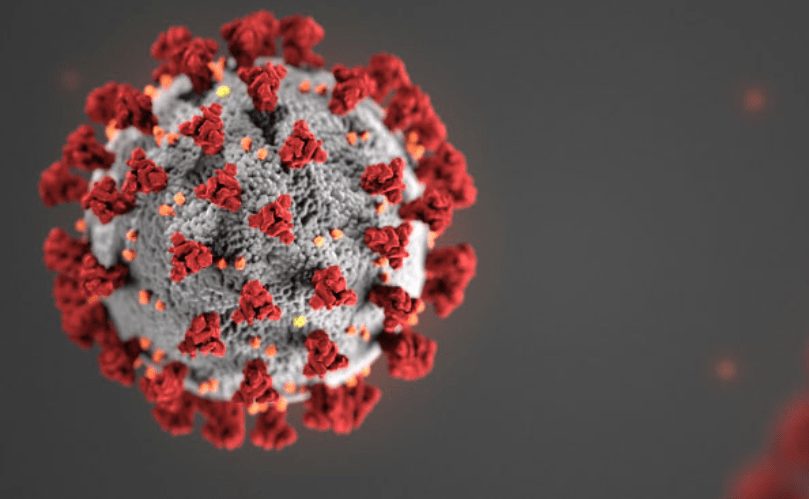FOR IMMEDIATE RELEASE
March 27, 2020
Congresswoman Barragán Applauds Passage of Historic Coronavirus Emergency Relief Legislation
Washington, D.C. — Today, Congresswoman Nanette Diaz Barragán applauded passage of the Coronavirus Aid Relief and Economic Security (CARES) Act, which President Trump signed into law this afternoon.
“This legislation will help families and small businesses all across the country,” Congresswoman Barragán said. “After listening to hundreds of my constituents, I know people are extremely concerned about the Coronavirus public health emergency. They are not only worried about their physical health, but also how this crisis is affecting their personal finances. People are afraid. Families, workers and small businesses will all need help getting through.
“Although I would like to have seen more of the total money go to families and workers, this bill was very much needed. During times of stress like this, the American people need to know their government is there for them. We must work together to support people in their time of need. We must meet the challenge and win this fight against the Coronavirus.”
Here are just a few of the numerous initiatives in this historic piece of legislation that will benefit California residents.
- A $150 Billion State and Local Coronavirus Relief Fund: Creates a $150 billion State and Local Coronavirus Relief Fund to provide states and localities additional resources to cope with the coronavirus pandemic. California will receive approximately $15.3 billion.
- $260 Billion in Dramatically Expanded Unemployment Benefits: Unemployment benefits will include an additional $600 per week for the next four months to help laid-off workers maintain their paychecks. Eligibility is expanded to include workers in the gig economy, freelancers and self-employed workers. People will have to apply for unemployment benefits as they normally would.
- Immediate Direct Cash Payments to Lower and Middle-Income Americans: Direct cash payments of $1,200 for each adult and $500 for each child will be made to lower- and middle-income Americans, beginning to phase out at an annual income of $75,000 for an individual and $150,000 for a household. Every person with a Social Security number will be eligible. Payments will be made by direct deposit to those who receive their IRS tax refunds that way. Other payments will be mailed out as checks or debit cards. Retirees and students will be eligible if they are not claimed as a dependent.
- $1.3 Billion to Support Community Health Centers: Community health centers and clinics are on the front lines in the fight against coronavirus in low-income communities. The bill provides $1.3 billion to support community health centers as their resources are being stressed to the limits. I’m proud to have led the effort with my colleagues to push to maximize funding for community health centers.
- More Than $375 Billion in Small Business Relief: Provides more than $375 billion in small business relief, including $349 billion for forgivable loans to small businesses to pay their employees and keep them on the payroll; $17 billion for debt relief for current and new SBA borrowers; and $10 billion in immediate disaster grants.
- Approximately $200 Billion for Our Hospitals, Health Care Workers, and Health Research: Provides an investment of about $200 billion in our hospitals, health systems, and health research, including expanding funding for the personal protective equipment desperately needed by our health care workers, including ventilators, n95 masks, gowns, gloves, etc.
- More Than $100 Billion in Additional Emergency Appropriations, Including the Following:
- Transit Agencies: Provides $25 billion to transit agencies, which have all seen a drastic drop in revenues as social distancing has been implemented. This funding is to be used to protect the jobs of the employees of the transit agencies, funding their paychecks during this public health emergency. California will receive $3.7 billion under this program.
- HUD Emergency Solution Grants: Provides $2 billion for HUD Emergency Solution Grants to states. These grants are designed to address the impact of coronavirus among individuals and families who are homeless or at risk of homelessness, and to support additional homeless assistance, prevention, and eviction prevention assistance. Of this $2 billion, our state will receive $237 million. The bill provides an additional $2 billion for these grants that will be allocated by HUD to the most hard-pressed areas, including Los Angeles.
- Child Care and Development Block Grant: Supports childcare and early education by providing $3.5 billion for the Child Care and Development Block Grant. California will receive $348 million under this emergency appropriation.
- Byrne-Justice Assistance Grant Program: Provides $850 million for this program, giving additional support to state and local law enforcement agencies, thereby allowing them, for example, to obtain the personal protective equipment and other medical items they may need during this public health emergency. California will receive almost $100 million.
- Election Assistance: Provides $400 million for Election Assistance Grants for states to help prepare for the 2020 elections. Funding can be used, for example, to increase the ability to vote by mail, expand early voting, and expand online registration. California will receive $36 million for these purposes.
###
Nanette Diaz Barragán is proud to represent California’s 44th Congressional District, which includes the communities of Carson, Compton, Florence-Firestone, Lynwood, North Long Beach, Rancho Dominguez, San Pedro, South Gate, Walnut Park, Watts, Willowbrook and Wilmington.

